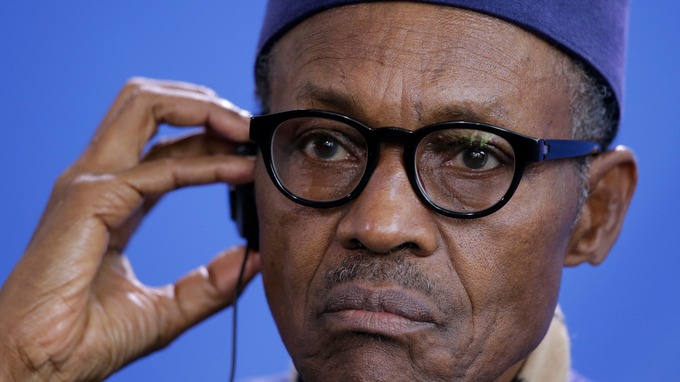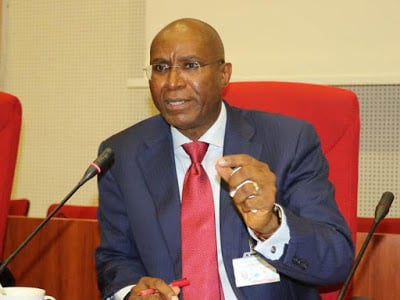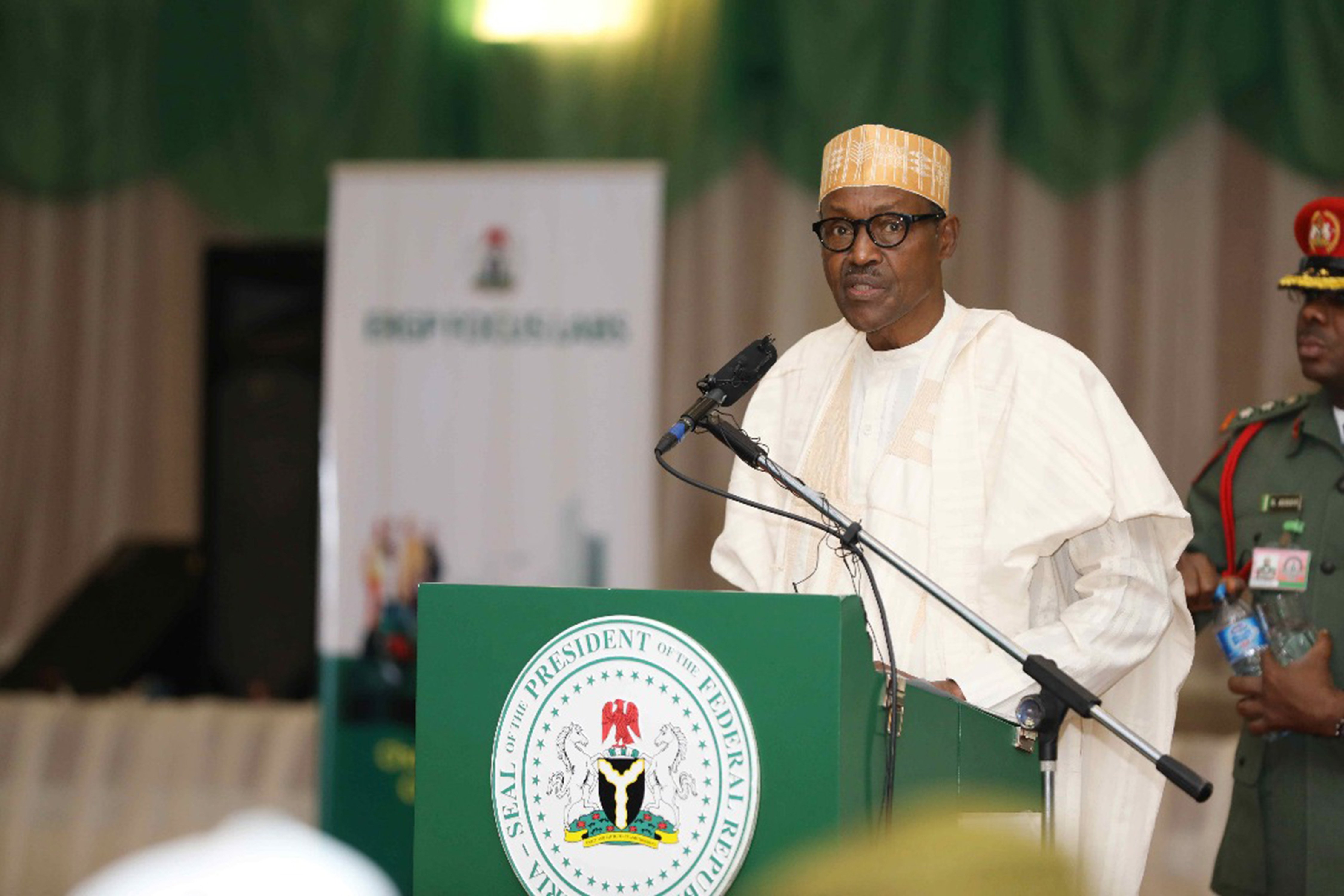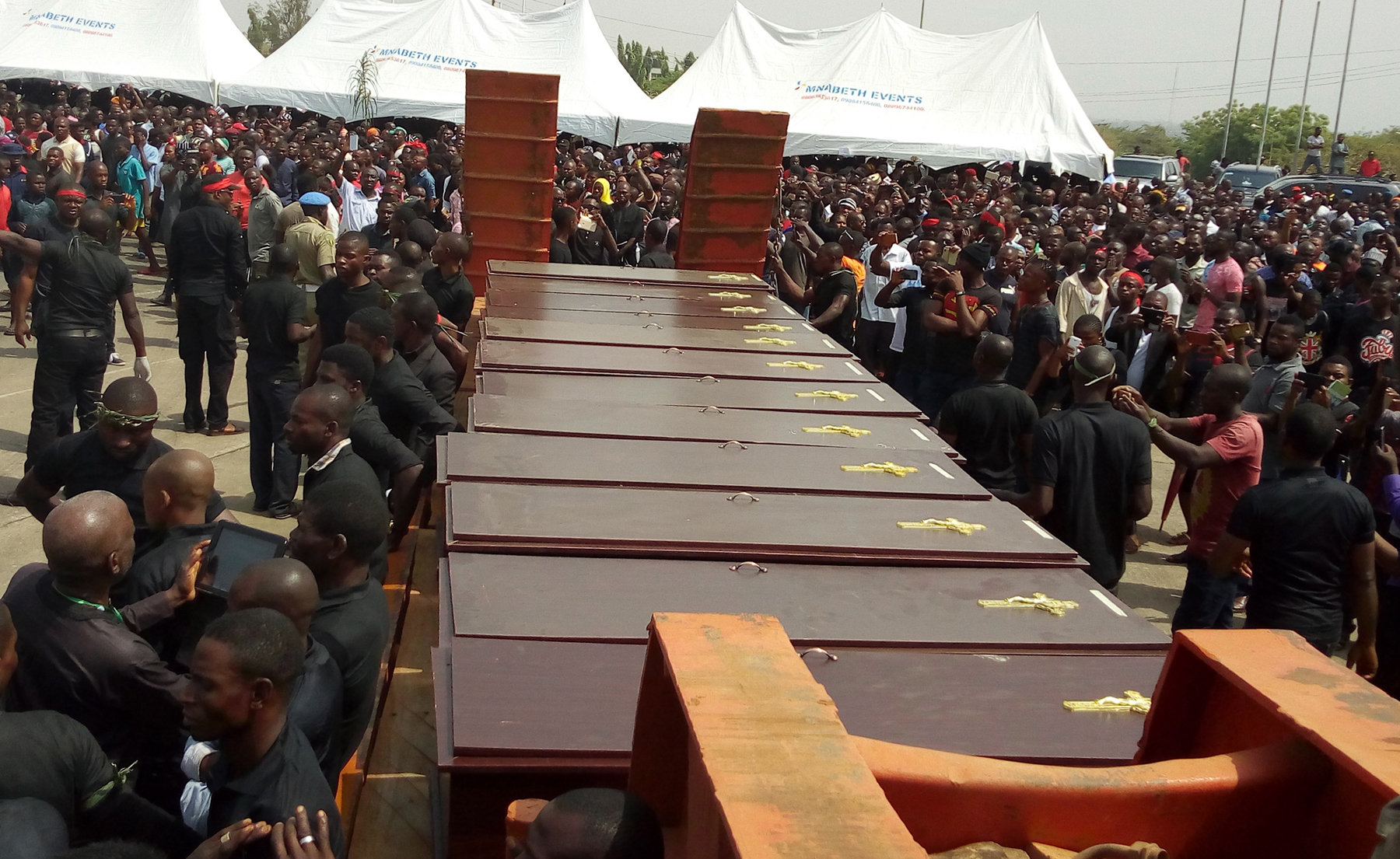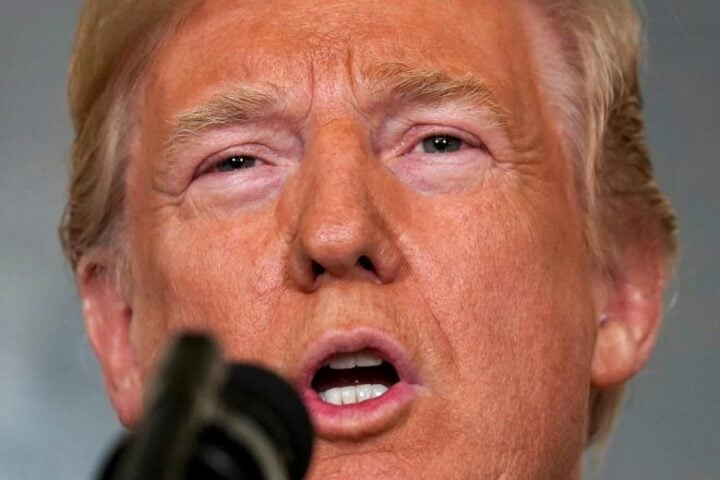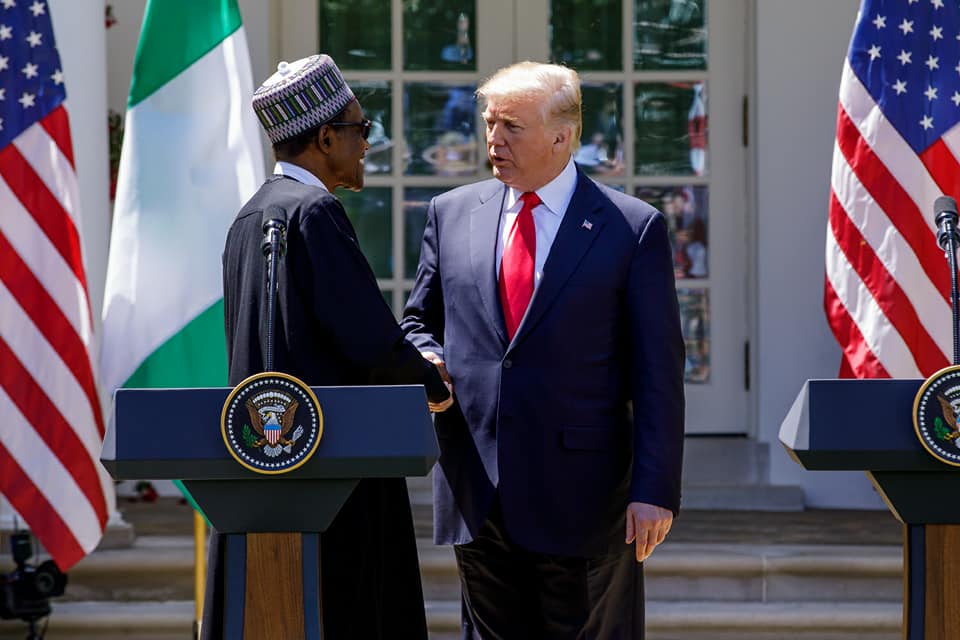Having once gone through a road of similar nature as theirs, I can access the state of mind of Nigerian presidential media handlers today. If Lai Mohammed, Femi Adesina and Garba Shehu could rudely snatch the microphone from their principal, Muhammadu Buhari, each time he speaks extempore, they would do so without batting an eyelid.
For a media minder of a political principal, there is nothing as beautiful as having a boss who understands and observes the boundary of what old French speakers call prescis. Prescis is more than being precise or exact in speech and accuracy. It is about understanding the boundary of thoughts, the word’s tendency to destroy and its similarity with, in the words of Professor Niyi Osundare’s book of poetry, The Word Is An Egg, the shell of an egg. Osundare was merely translating a very powerful Yoruba wise-saying which counsels the world that the moment the word is spoken, it assumes the delicate and breakable potential of porcelain; and once it spills its content, it becomes very difficult to reassemble.
The world doesn’t understand the dilemma and frustration of those media-minder gentlemen who are unlucky to have principals who, once they are handed the microphone, spill their words like a broken trough. White House Press Secretary, Sarah Huckabee Sanders, would someday tell the world her frustration with Donald Trump’s flippancy and his more-combustible-than-North Korea-Kim’s-nuke Twitter posts. At the point when such principal holds the microphone, the blood pressure of those gentlemen would rise a notch, only to nosedive once they are lucky the principal avoided provoking a Hiroshima. One principal once said, after provoking a Nagazaki, “The deed has been done; clean me up! I pay you to clean me up!”
Muhammadu Buhari is in such category. Last week, I attempted a psycho analysis of his persona. It is difficult to arrive at a clear juncture. Though he speaks seldom, when he does, Buhari has a legendary pedigree of un-guardedness in speech. But, no matter how seismic his unguarded utterances were as a military despot, he went away with them and the public would seem to have pardoned them as one of the noxious wares in the baggage of a military government. Ibrahim Babangida made so many of such; so also, Sani Abacha. Babangida, at the zenith of his power and majesty, once aped biblical King Nebuchadnezzar. Flaunting the massive and destructive power of state to mow down dissenting voices at his disposal, Babangida, during the June 12 saga, once equated the power he had with that of providence, as reflected in his, “we are not only in power but in government.” In an earlier interview with the defunct Concord magazine, he boasted that lethal war heroes, Chaka the Zulu and the Carthaginian General, Hannibal were his heroes. No reprisal came from the civilian populace.
Advertisement
President Buhari does not respect the destructive power of the word the moment he begins to speak out of the written speech. Empirical evidence abounds to back this up. When handed the microphone to speak after his arrival from months of seeking medical remedy to an undisclosed ailment in the United Kingdom, Buhari didn’t mind all the lies that had been told to prod his health situation by his media minders. He simply said he had never been that sick in his life and even underwent a blood transfusion. I imagine that Mohammed and Shehu died and woke up immediately they heard that. While standing side by side unarguably the most powerful woman in the world, German Chancellor Angela Merkel and he was asked about the role of his wife, Aisha in government, Buhari merely said that his wife “belongs to the other room.” Not for him was there any bother that the statement was impolitic, insulting and indecorous which denigrated womanhood as utensils and wares, even when their strongest global representative, Merkel was less than a yard away. Buhari had earlier, still speaking extempore, on his maiden American tour, when asked how inclusive his government would be, said those who gave him 95% of their votes deserved more dividends of democracy than those who volunteered a mere 5%. Aftermath the incessant Fulnai herders/farmers clash which had harvested thousands of corpses, and media coercion and harangue got him to Taraba State, when handed the mic to speak extempore, Buhari merely compared cadavers. His Fulani brothers who were killed in Taraba, he said, outweighed those killed in Benue. I imagine that his media minders went straight for their pills, lest they suffer an attack of stroke.
The latest gaffe of the President happened during his most recent London trip. Many interventions have been offered on the actual reading of Buhari’s off-tangent comment while answering a question posed to him on this trip. While some said that such veer-off was normal in international meets, some said it was a function of the lack of depth of the president. The moderator of the Commonwealth Business Forum had asked the Nigerian president, after his delivery of the keynote address, “President Buhari, there is great interest in your thoughts on many issues, especially on investment in the North-east; on the continental free trade agreement… Would you like to take the microphone and leave us with the final thought from you?” And the president had exploded: “We have a very young population; out population is estimated conservatively to be 180 million. More than 60 per cent of the population is below the age of 30. A lot of them have not been to school and they are claiming that Nigeria has been an oil producing country; therefore they should sit and do nothing and get housing, healthcare and education free.”
If you ask me, I think there is an inexplicable disconnect between what Buhari was asked and what he volunteered. Apparently, his keynote address had powerfully advocated global support for the rebuilding of the North-east which Boko Haram’s devastation has greatly destroyed, as well as the continental free trade issue which Heads of States recently gathered to discuss in Kigali. They had gathered at the 10th Extraordinary Summit of the African Union to consider the legal instruments of the African Continental Free Trade Area (AfCTA) and also launch the agreement officially to establish the treaty. How then does one strike a balance between these two variations in Buhari’s thought and what could be responsible for them? Was it that the President couldn’t mentally access the subject? Was it that he needed to urgently volunteer his thought on Nigerian youths?
Advertisement
Now, let us subject Buhari’s reply to semiotic scrutiny. Of a truth, Nigeria’s population of about 180 million bursts at its seams with youth. It is also true that a number of the population, under 30 years of age, have either not been to school or school has not been to them. An example is the army of Almajiri youth who have no education, causing crisis in the North of Nigeria. It is also true that not only the youth alone but Nigerians in general complain about the Nigerian state as irresponsible, its oil producing status notwithstanding. This is reflected in the huge national complaints about the great lacuna between Nigeria’s oil wealth and the gripping poverty in the land. Unless we want to fool ourselves, either due to systemic conspiracies or the fault of the youth themselves, Nigerian youths indeed complain about housing, healthcare and education. The only aspect of that presidential retort that is open to debate is Buhari’s narrative of the youth who think that “they should sit and do nothing.”
Do a great number of Nigerian youth think they should sit and do nothing? Yes, I agree with the President. Through no fault of theirs, there is an elite conspiracy, which began several decades ago, to deny the youth a today and a future. And the denial is structural. Since the collapse of Nigerian federalism in 1966 and successive military governments came into the picture, there has been very sparse attention paid to the future development of the Nigerian youth. Except in the lip-service to youth in the form of the National Youth Service Corps, (NYSC) governments hardly deliberate on what becomes of the youth. Gradually, free education, started in the Western region in 1953, which had become the fancy of other regional governments, was suddenly abandoned and the youth was left at the mercy of himself.
The fate of the youth was compounded by the filch mentality of Nigerian rulers who began the culture of a rat race towards mopping up our collective wealth. Muhammadu Buhari is one of those rulers. Gradually, it became a fad for government to vote sparingly for the development of the youth and the few left in national coffers scarcely being able to take care of the youth’s future. Thus, the quality of vote for the education sector dropped phenomenally and as such, increment in the quantity of roam-about youth and drop in the quality of education they are impacted with in school. The combination of both conspired to destroy educationists’ claim that no one is uneducable. These ones look like no meaningful education can penetrate their oblongata. Today, anyone in doubt of the quality of youth we churn out from schools should read the Facebook. It is disheartening.
I however agree that there are thousands of hardworking young men out there. Between 2013 and February this year, I was classmate to some very brilliant youth at the University of Ibadan. I was not surprised that 21 of them “embarrassed” a conservative university like UI by making an unprecedented harvest of First Class. There are some hardworking and brilliant youth you encounter and you are sure that a future awaits Nigeria. They are also scattered all over the world eking a living the hard way and contributing their meaningful quota to their host countries’ economies. They are however so negligible when compared to the horde of jobless, future-less and hopeless youth that Buhari and his predecessors sire yearly and shovel into our helpless society. They are the swarm of desperate fraudsters, neighborhood urchins and criminals you encounter daily by your balcony. Unfortunately, the universities download these hopeless half-baked army of youth into the society in thousands every year at ceremonies they call Graduation Day. Buhari, as well as his predecessors, have no answer to their menace. They are the bomb that will explode in the face of the children the Buharis and their elite side-kicks send to John Hopkins, Harvard and Cambridge with our stolen money. By then, it will be too late to put out the fire that is just next door away.
Advertisement
A triangle of mourning
Very few deaths in recent time have brought the fact of mortality of the human flesh to me as vividly as the passing of Michael Adeyemo, Speaker of the Oyo State House of Assembly. Adeyemo translated mortality for immortality in the morning of Friday, April 27, 2018. He made a death-day mate of Imam Imam, Special Adviser to the Sokoto State governor, Aminu Tambuwal. He died on same day with Adeyemo. Earlier, a former colleague aide to the governor of Oyo State, Sola Oyedeji, who was Senior Special Assistant on Taxation, had suddenly caved in to the mortal blow of death. He was suspected to have died of a heart attack.
But, why will Adeyemo die? It is an inscrutable fact of life that death bypasses those who deserve not to be in the midst of humanity and takes away the most human of humanity. Adeyemo was a human being in all its reading. He was not my friend as the facts of friendship connote but he was a person who disarmed with his humanity and you wished he was closer. Simple, unassuming, humble… you may add any positive epithet that is rare among those who administer the Nigerian state, Adeyemo mirrored a character trait that very few Nigerian politicians possess.
Our path crossed immediately he lost his wife some years ago. The Oyo State government delegation had visited his Oke-Ado, Ibadan abode, a once posh elite haven that is now one of the fast deteriorating slums of the capital city, on commiseration. He was then a member of the Peoples Democratic Party (PDP) and an opposition member in the State’s House of Assembly. How could a parliamentarian live inside the slum of Oke-Ado? But his brain, rather than where lived, advertised him while his upbringing of peaceable living with his fellow man cemented his place at the top. We were later to discover that he was a lawyer and had indeed worked in the highly respected law firm of Akeredolu and Olujinmi. I learnt Rotimi Akeredolu was one of the earliest callers in Adeyemo’s house immediately he passed on.
Advertisement
Adeyemo was one politician who didn’t wear his earthly garlands on his sleeve. A few years ago, I had encountered him in a secondary school compound in Oluyole Estate sitting on a wooden bench beside the school gate. He had taken his child there for an entrance examination as I did. The face was the Speaker’s but the place he sat was that of a plebeian, apology to the biblical story of Jacob and Esau. So I walked past, only for him to stop me in my strides and ask if I wouldn’t greet him. Some months ago too, I had encountered him at the University of Ibadan. He was apparently undergoing an LLM programme at the university’s Faculty of Law. Aside his big size which marked him out as alien to that community of lean-looking students, his dressing was a fitting match to the community’s. “What brought you here, Hon Speaker?” I had asked. “What brought you here too?” he had queried, smiling. So when a few weeks after, some students of the university needed assistance to travel to Abuja and I called him, he gave them a bus to convey them to Abuja and promised to do even more. Right on my table as I write this is the students’ request to have him dig a borehole for them. So, why would such a good man die?
My condolences go too to the families of Imam and Oyedeji; they were nice souls. This triangle of deaths and mourning just confirmed existentialist philosophers’ submission that we will all die our own deaths and that man is old enough to die the very day he is born. I pray that when it comes to our own turn to kick out this insipid flesh, we would have attained immortality with our good works.
Advertisement
Views expressed by contributors are strictly personal and not of TheCable.
Add a comment

